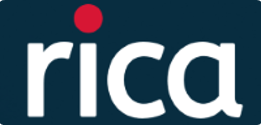Some contributions of the Pibid/UCS Mathematics subproject for the educational context and high school
Keywords:
PIBID, Mathematics, learningAbstract
This work approaches general aspects on the Pibid –Institutional Program of Scholarship for Teaching Initiation, a brief referencial on applications of the project and discussions on the educational context and, also, the story and analysis of the results of some activities developed for professors and scholarship holders of the mathematical Pibid subproject, of the University of Caxias do Sul, in São Caetano State High School, from the city of Caxias do Sul/RS. The development of the project took place throughout four years and allowed the verification of the learning of the academic scholarship holders, while future professionals of the education, as much of the students of the school where the activities had been applied. Throughout the time, it was possible to raise some data that highlighted the importance of the activities of the mathematical Pibid/UCS subproject for the education of the course, for the educational context, as well as the performance of the graduate students along the process. Besides, bringing in its referencial some operating experiences of other groups of research and Institutions acting in the Pibid context.
References
BRASIL, PIBID - Programa Institucional de Bolsa de Iniciação à Docência. Disponível em: http://portal.mec.gov.br/pibid. Acessado em 14 de setembro de 2017.
BRASIL, Ministério da Educação – CAPES. PIBID – Programa Institucional de Iniciação à Docência. Disponível em: http://www.capes.gov.br/educacao-basica/capespibid/pibid. Acessado em 14 de setembro de 2017.
CORDEIRO, Maria Euzane; OLIVEIRA, Guilherme Saramago de. As metodologias de ensino predominantes nas salas de aula. VIII Encontro de Pesquisa em Educação e III Congresso Internacional Trabalho Docente e Processos Educativos. Uniube, 2015.
OLIVEIRA, G. S.; SILVA, V. G. Tecnologias de informação no contexto das práticas pedagógicas de Matemática nos anos iniciais do Ensino Fundamental. In: LONGHINI; M. D. (org.) O uno e o diverso na Educação. Uberlândia: EDUFU, 2011. p. 311-322.
BRASIL. Secretaria de Educação Fundamental. Parâmetros curriculares nacionais: Matemática. Brasília: MEC/SEF, 1997.
VIERO, Vartieli Lopes et al. Experiências no PIBID-Matemática: Investigação Matemática em sala de aula com o uso do Tangram. In: 1º PIBIDSUL / PARFORSUL / ENLICSUL: impactos na formação docente inicial e continuada. Anais. Lages (SC): UNIPLAC, 2015.
MONTANDON, Maria Isabel. Políticas públicas para a formação de professores no Brasil: os programas Pibid e Prodocência. Revista da ABEM, v.20 n.28, 2012.
PORTO, Adriana Silva; LOPES, LDRP. Utilizando O Lúdico Na Resolução De Problemas Matemáticos: Um Estudo Nas Séries Iniciais De Uma Escola Parceira Do Pibid. Anais XI Encontro Nacional de Educação Matemática. XI ENEM. Curitiba, 2013.
RODRIGUES, Zionice Garbelini Martos et al. PIBID e a formação de saberes docentes: percepções dos licenciandos sobre o uso de jogos educativos como estratégias para o ensino da matemática. In: Congresso Nacional de Formação de Professores. Universidade Estadual Paulista (UNESP), 2014. p. 2816-2826.
PEREIRA, Patricia Santos; LÔBO, Wériton De Souza; SANTO, Silmary Silva Dos. Xadrez Uma Prática Lúdica E Suas Contribuições Para O Ensino Da Matemática. Anais XI Encontro Nacional de Educação Matemática, 2013.
MAIA, Érika Janine; CHARAL, Ingridi Rodrigues; COUSIN, Alexandra de Oliveira Abdala. Atividades motivadoras para o ensino da matemática: apresentando experiências do Pibid. Sociedade Brasileira de Educação Matemática. Anais do XI Encontro Nacional de Educação Matemática, 2013.
Downloads
Published
How to Cite
Issue
Section
License
Copyright (c) 2021 Interdisciplinary Journal of Applied Science

This work is licensed under a Creative Commons Attribution-NonCommercial-NoDerivatives 4.0 International License.
Authors keep the copyright and cede to the journal the right of publishing first. Published works are licensed under a Creative Commons Attribution 4.0 International (CC BY 4.0) license, allowing the sharing of the work with recognition of the authorship and initial publication in this journal.






